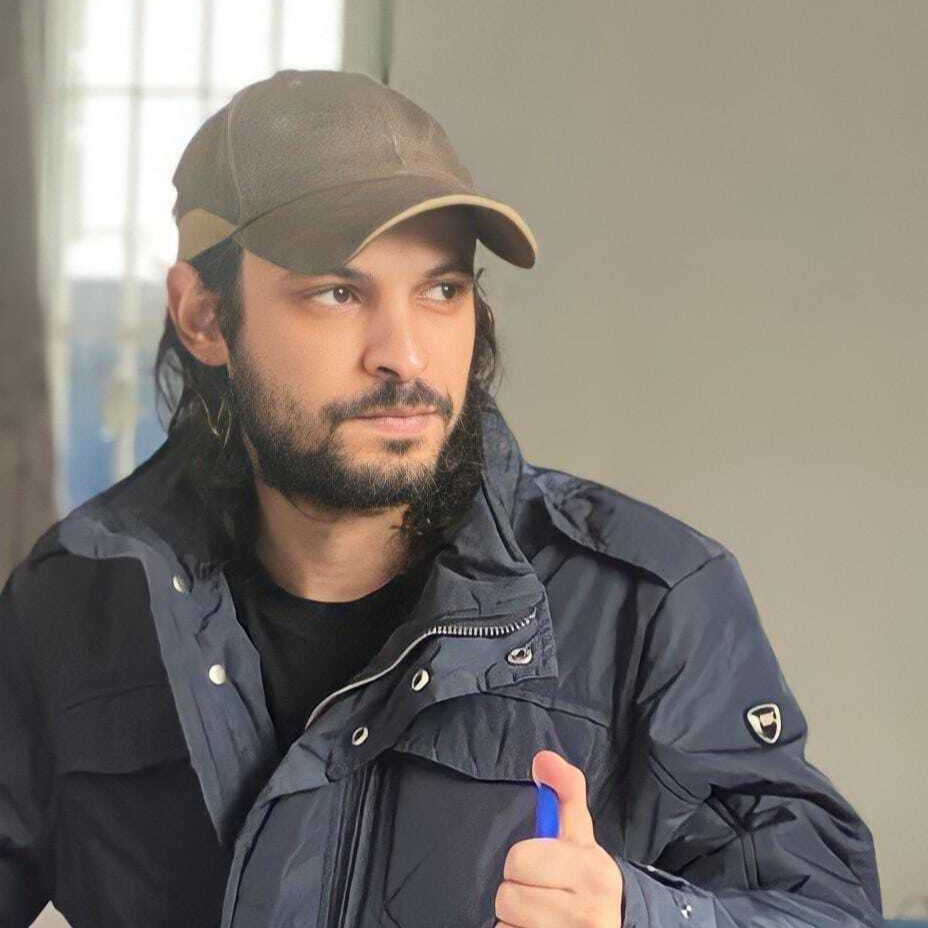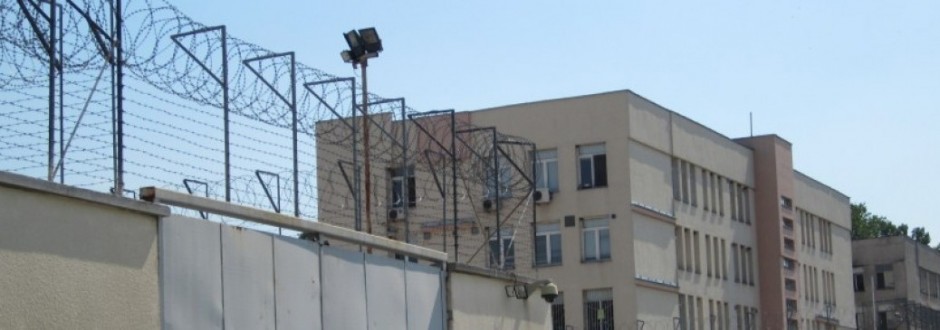
The human rights activist Abdulrahman al-Khalidi from Saudi Arabia has been imprisoned in Bulgaria for almost three years. Because he fears being deported, he has gone on hunger strike.
Abdulrahman al-Khalidi was only allowed to leave the Busmantsi deportation center near Sofia airport on 5th of July for a hearing before the administrative court. A group of supporters had gathered in front of the court; the police tried to prevent contact between them and al-Khalidi. On the same day, he announced on social media that he was going on hunger strike in protest against his impending deportation and the poor conditions of detention.
Al-Khalidi is a human rights activist from Saudi Arabia who has campaigned for the rights of prisoners there and supported the Saudi Association for Civil and Political Rights (ACPRA). He also took part in several demonstrations in support of Saudi prisoners in the capital Riyadh. In March 2013, al-Khalidi fled first to Egypt, then to Qatar and Turkey. In exile, he continued his political activities and worked as a journalist. He was active in the online movement Geish al-Nahl (Bee Army, internationally known as Bees Army), which aimed to counter the Saudi government’s propaganda campaigns on social media.
After the murder of journalist Jamal Khashoggi in the Saudi consulate in Istanbul in 2018, who had explicitly referred to the Bees Army on Twitter a few days earlier, al-Khalidi feared for his safety because, according to him, he himself was in contact with Khashoggi. He did not renew his identity documents as he might have had to appear at the same consulate. Al-Khalidi left his two children and his wife behind in Turkey and fled to Bulgaria in October 2021 to apply for asylum. Since then, he has been held in custody pending deportation in Busmantsi. Aid organizations such as the Bulgarian Helsinki Committee (BHK) repeatedly denounce the lack of translators and legal assistance as well as poor hygienic conditions, among other things.
„There are serious human rights violations in Saudi Arabia that are being covered up. There are people who suffer from torture or violations of civil and political rights in my country. We need to reform the status quo,“ says al-Khalidi. The activist and journalist cannot understand why he has been imprisoned in Busmantsi since October 2021. In 2022, the State Agency for Refugees (SAF) rejected his asylum application. Al-Khalidi summarizes the decision-making process: „The refugee agency claimed that the authorities in the Kingdom of Saudi Arabia had ‚democratized‘ society. Human rights violations were denied. The decision stated: ‚The asylum seeker could safely return as it was considered a safe country. The refugee agency also claimed that I had left my country for Bulgaria for ‚economic reasons‘. The court did not provide me with a translator during the hearings and the judge only confirmed the refugee agency’s decision.“
On the 17th of January, an administrative court in Sofia accepted al-Khalidi’s application and ordered his release. However, the domestic intelligence service, the State Agency for National Security, lodged an appeal and al-Khalidi remained in custody; on the 7th of February, he received a deportation order. He sees his hunger strike as a last resort to draw attention to his situation. While he repeatedly reports incidents in detention, including mistreatment by staff, he is fighting for his refugee status in court. If he is deported, al-Khalidi fears for his life. International and national human rights organizations have repeatedly spoken out against his deportation. For example, the chairman of the BHK, Krassimir Kanev, wrote an open letter to the Bulgarian Ministry of the Interior. Human Rights Watch and Amnesty International also criticized the deportation order.
According to Amnesty, the Saudi Arabian authorities continued to persecute people „who peacefully exercised their rights to freedom of expression and association“ in 2023. Some of them were sentenced to long prison terms or death. In July last year, for example, a Saudi special court for terrorist offenses sentenced the 54-year-old retired teacher Mohammed bin Nasser al-Ghamdi to death for his online activities on X (formerly Twitter) and YouTube. According to Statista, 172 people were executed in Saudi Arabia in 2023. This put the country in third place worldwide after China and Iran.
The Special Rapporteur on the situation of human rights defenders at the UN Human Rights Council, Mary Lawlor, wrote on X that she was monitoring the case closely. Al-Khalidi’s deportation would violate Bulgaria’s commitment to the principle of non-refoulement. Bulgaria is repeatedly accused of deporting people who are subject to political persecution in their country of origin. In 2021, the European Court of Human Rights (ECtHR) criticized the deportations of refugees and migrants from Bulgaria to Turkey. These were carried out without any examination of the individual risk of imminent human rights violations and therefore violate the European Convention on Human Rights. In one ruling, the ECtHR awarded 15,000 euros in compensation to a deported journalist who had worked for the daily newspaper Zaman and the press agency Cihan; both had been closed down by a government decree on the 27th of July, 2016 following the failed coup attempt in Turkey. After his deportation, he was sentenced to seven and a half years in prison in Turkey, primarily because the instant messaging app Bylock, which the Turkish government associates with terrorist activities, was allegedly on his smartphone. Time and again, Turks have been deported to their country of origin despite fearing political persecution there.
18,554 people were in immigration detention in Bulgaria in 2023. Al-Khalidi attributes the shortcomings in Bulgaria’s asylum policy to political instability, weak economic performance, widespread corruption and poor administration. By attracting public attention, al-Khalidi hopes to gain the necessary support in a country that is repeatedly shaken by political crises. „It would help me if people spoke publicly about my case, exposed the procedural errors that the authorities are trying to cover up, and put pressure on the European and Bulgarian authorities to achieve justice and legal protection.“ He is now waiting for a new decision on his asylum application, which is due to take place in around a month. A decision on the previously postponed deportation order will then be made on the 20th of September. Al-Khalidi wants to continue his hunger strike until his asylum application has been accepted and he is free.
